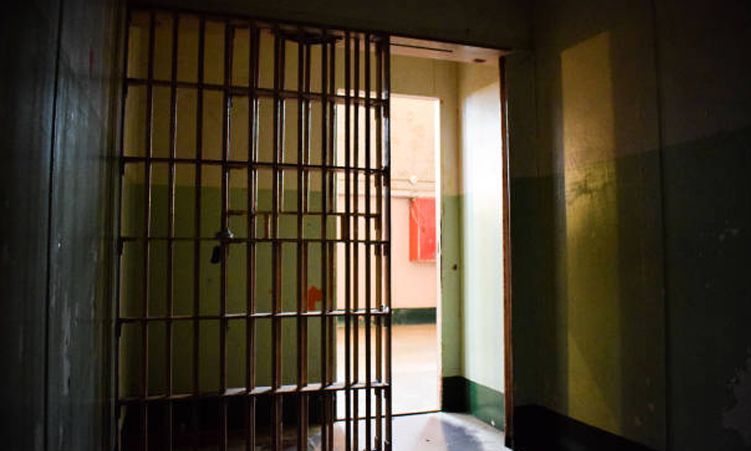WINDHOEK City employees are reportedly being harassed and even threatened, since it emerged a week ago that many earn as much as 50 per cent more than their equals in other public service institutions.
City of Windhoek Chief Eexecutive Officer Niilo Taapopi called on residents yesterday to consider municipal salaries in “perspective” – given that City employees are expected to do very specialised work and deliver good service. “The public knows that no one will deliver a good service for peanuts,” he told the media.Given prevailing socio-economic factors, Taapopi maintained that a five per cent salary increase approved for this financial year “is quite considerate”.He said it had to be taken into account that the City’s total employment cost as a percentage of total operating budget stood at 32 per cent – less than the generally accepted norm or benchmark which suggests that an organisation’s wage bill should range between 35 and 40 per cent of its costs.A market survey has indicated that the City of Windhoek is among the country’s best-paying public service organisations.Taapopi and Namibia Public Workers Union (Napwu) shop steward Edgar Phillips said with this information now in the public domain, workers had complained of being threatened and harassed by those wanting money from them – including taxi drivers.Phillips reminded residents that Windhoek had received international acclaim for its service delivery and that employees were working hard to keep the City running.In a statement issued yesterday, the Windhoek Ratepayers’ Association called for the salary increases to be rescinded and that the City be more transparent in providing ratepayers with the organisation’s full salary scale, including the job descriptions of employees in the respective categories.The WRA said that after recent discussions on the City’s budget, it appeared that resources were stretched in ensuring the smooth running of essential services.Yesterday the City steered clear of mentioning the millions it is owed by Government for the State House plot (last valued at around N$24 million) and several million more for its agreement to share the development costs of the Ramatex Textile Factory “Is the City not able or not willing to retrieve the outstanding monies from the Government?” the WRA queried in a statement.The WRA said given the City’s salary structure, it appeared that the council was more concerned about lining their own pockets, at the expense of the ratepayer, than fulfilling their duties.The City maintained that it was a “misrepresentation” to say that its management had obtained two increases within a space of six months, because the money came from the budgets of two consecutive years.Because top management is not part of the bargaining unit, their increases during the last financial year were only approved and implemented last November.They are due for another increase approved for this financial year, as from this month.In fact, Taapopi maintained that the City was operating with quite a lean organisational structure because it did not make provision for deputy officials at various levels, as is the case in other public sector institutions.The City currently has a staff of 1 460.Excluding around 300 vacancies within the City Police, the City has around 400 vacancies that cannot be filled due to a lack of funds.Strategic Executive for Human Resources and Administration Heritha Sepiso said “critical vacancies” would have to be strongly motivated before being filled.Taapopi said the current staff complement faced tremendous pressure to maintain the current quality of service Windhoek residents have grown to enjoy.Assessment rates have been increased by three per cent this financial year to cater for the salary increases of employees and to recruit new City Police members.A market survey has revealed that with the exception of the highest salary grading, the City pays all its staff above the middle notch of the same grading system in the public sector, both in terms of basic salary and the total cost of employment.The City’s lowest-paid workers – in scales A and B – earn between 34 and 51 per cent more than the market average.In the middle salary range C, employees earn between 28 and 33 per cent more than the market average, while middle management in category D earn around 49 per cent more than their equals elsewhere.”The public knows that no one will deliver a good service for peanuts,” he told the media.Given prevailing socio-economic factors, Taapopi maintained that a five per cent salary increase approved for this financial year “is quite considerate”.He said it had to be taken into account that the City’s total employment cost as a percentage of total operating budget stood at 32 per cent – less than the generally accepted norm or benchmark which suggests that an organisation’s wage bill should range between 35 and 40 per cent of its costs.A market survey has indicated that the City of Windhoek is among the country’s best-paying public service organisations. Taapopi and Namibia Public Workers Union (Napwu) shop steward Edgar Phillips said with this information now in the public domain, workers had complained of being threatened and harassed by those wanting money from them – including taxi drivers.Phillips reminded residents that Windhoek had received international acclaim for its service delivery and that employees were working hard to keep the City running.In a statement issued yesterday, the Windhoek Ratepayers’ Association called for the salary increases to be rescinded and that the City be more transparent in providing ratepayers with the organisation’s full salary scale, including the job descriptions of employees in the respective categories.The WRA said that after recent discussions on the City’s budget, it appeared that resources were stretched in ensuring the smooth running of essential services.Yesterday the City steered clear of mentioning the millions it is owed by Government for the State House plot (last valued at around N$24 million) and several million more for its agreement to share the development costs of the Ramatex Textile Factory “Is the City not able or not willing to retrieve the outstanding monies from the Government?” the WRA queried in a statement.The WRA said given the City’s salary structure, it appeared that the council was more concerned about lining their own pockets, at the expense of the ratepayer, than fulfilling their duties.The City maintained that it was a “misrepresentation” to say that its management had obtained two increases within a space of six months, because the money came from the budgets of two consecutive years.Because top management is not part of the bargaining unit, their increases during the last financial year were only approved and implemented last November.They are due for another increase approved for this financial year, as from this month.In fact, Taapopi maintained that the City was operating with quite a lean organisational structure because it did not make provision for deputy officials at various levels, as is the case in other public sector institutions.The City currently has a staff of 1 460.Excluding around 300 vacancies within the City Police, the City has around 400 vacancies that cannot be filled due to a lack of funds.Strategic Executive for Human Resources and Administration Heritha Sepiso said “critical vacancies” would have to be strongly motivated before being filled.Taapopi said the current staff complement faced tremendous pressure to maintain the current quality of service Windhoek residents have grown to enjoy.Assessment rates have been increased by three per cent this financial year to cater for the salary increases of employees and to recruit new City Police members.A market survey has revealed that with the exception of the highest salary grading, the City pays all its staff above the middle notch of the same grading system in the public sector, both in terms of basic salary and the total cost of employment.The City’s lowest-paid workers – in scales A and B – earn between 34 and 51 per cent more than the market avera
ge.In the middle salary range C, employees earn between 28 and 33 per cent more than the market average, while middle management in category D earn around 49 per cent more than their equals elsewhere.
Stay informed with The Namibian – your source for credible journalism. Get in-depth reporting and opinions for
only N$85 a month. Invest in journalism, invest in democracy –
Subscribe Now!










